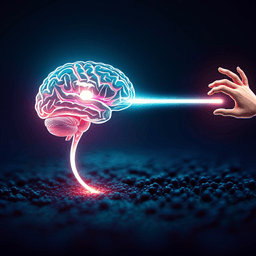
Medicine and Health
Meta-learning of human motor adaptation via the dorsal premotor cortex
T. Sugiyama, S. Uehara, et al.
Meta-learning lets the brain learn how to learn — this study shows that the dorsal premotor cortex (PMd), not the dorsolateral prefrontal cortex (DLPFC), is crucial for regulating the rate and retention of motor adaptation to maximize rewards: PMd-targeted TMS impaired meta-learning and memory retention. Research conducted by Taisei Sugiyama, Shintaro Uehara, and Jun Izawa.
Related Publications
Explore these studies to deepen your understanding of the subject.







